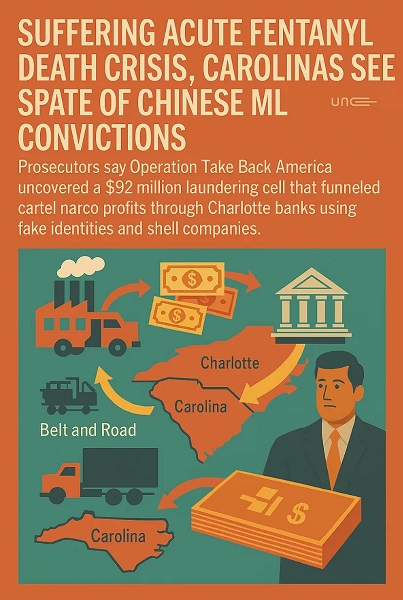Crime
ICE Nabs Illegal Migrant ‘Gotaway’ Charged With Raping Child On Ritzy Island In ‘Sanctuary’ State

 From the Daily Caller News Foundation
From the Daily Caller News Foundation
Federal immigration authorities on Tuesday successfully apprehended an illegal migrant charged with raping a minor on a wealthy Massachusetts island.
Immigration and Customs Enforcement (ICE) agents in Nantucket nabbed Bryan Daniel Aldana-Arevalo, a 28-year-old Salvadoran national living unlawfully in the country, according to a press release from the agency published Monday. Aldana was charged earlier this year with two counts of indecent assault and battery of a child under 14 and one count of rape of a child with a 10-year age difference.
“Bryan Daniel Aldana-Arevalo stands accused of some detestable and disturbing crimes against a Nantucket child,” Enforcement and Removal Operations (ERO) Boston Field Office Director Todd Lyons stated on Monday in the press release. “He represents a significant danger to the children of our Massachusetts communities.”
Aldana illegally crossed into the U.S. at an unknown date and unknown location, according to ICE. Such illegal migrants in the country are categorized as “gotaways,” as they were not stopped by Border Patrol or other federal immigration officials before entering the interior of the U.S.

Immigration and Customs Enforcement (ICE) arrest of Bryan Daniel Aldana-Arevalo. (Photo by ICE)
The Salvadoran national was arraigned in Nantucket District Court for the multiple sex crime charges on July 26, according to ICE. He was later released on bail by the Nantucket District Court on July 29.
“ERO Boston will not tolerate such a threat to the most vulnerable of our population,” Lyons stated. “We will continue to prioritize the safety of our public by arresting and removing egregious noncitizen offenders from our New England neighborhoods.”
Since his ICE apprehension, Aldana has been served with a notice to appear before an immigration judge, and he remains in ICE custody, according to the agency.
“The Nantucket Police Department, specifically the Detective Unit did assist with identifying requested addresses provided to them by the U.S. Immigration and Customs Enforcement Agency,” reads a Thursday press statement from the police department. Deportation officers made an unknown number of arrests on the island last week, which specifically targeted “violent offenders.”
The Nantucket population in 2022 had a median household income of more than $131,000, according to Data USA, far surpassing the median household income of the country that same year, which was slightly less than $75,000. Housing has become so expensive on the island, that some homes costing as much as $1 million have been offered via a lottery system as a part of a subsidized housing program, according to The New York Post.
President Joe Biden won more than 70% of the vote in Nantucket County in the 2020 presidential election, according to county election results compiled by CNN.
Aldana is one of the countless gotaways who enter the country illegally and undetected by federal immigration authorities. Around two million known gotaways have crossed into the U.S. since the beginning of the Biden-Harris administration, a congressional source confirmed to the Daily Caller News Foundation earlier this year.
Over seven million migrants have illegally crossed the U.S. southern border since the beginning of the Biden-Harris administration, according to the latest Customs and Border Protection (CBP) data.
Alberta
Bonnyville RCMP targeted by suspect driving a trackhoe

From Bonnyville RCMP
On May 3, 2025, at approximately 6:55 p.m., a male suspect drove a stolen trackhoe into the parking lot of the Bonnyville RCMP. The suspect dumped several boulders in front of the prisoner bay and then proceeded to damage 5 police vehicles, which were parked in the lot. The suspect then fled on foot.
Bonnyville RCMP, Police Dog Services and RPAS (drone), searched for the suspect and he was quickly located in a tree line just north west of the detachment. He was arrested and is currently in custody pending a Judicial
Interim Release Hearing.
The suspect cannot be named at this point as the charges have not been sworn before the courts. An updated media release is expected in the coming days.

Crime
Operation Take Back America Strikes Chinese Money Launderers in Charlotte Cartel Case

 Sam Cooper
Sam Cooper
CHARLOTTE, N.C. — Striking a cell capable of washing $100 million within what U.S. counter-narcotics officials describe as a half-trillion-dollar global enterprise, federal prosecutors have secured convictions against three men tied to a China-based transnational laundering syndicate, exposing how Mexican cartel drug proceeds flowed quietly through Charlotte banks as overdose deaths surged across the Carolinas.
The case, centered in Charlotte, North Carolina, reveals the concealed infrastructure enabling Mexican cartels to convert fentanyl profits into clean capital, aided by sophisticated Chinese professional launderers operating like underwriters and rogue accountants—embedding illicit funds in regional banks using fake identities and a dense lattice of shell companies.
Prosecutors say Maoxuan Xia, 29, of China; Shao Neng Lin, 58, of Baldwin Park, California; and Zhou Yu, 42, of China, laundered more than $92 million in drug proceeds through this underground system. Court records show the trio used false documentation and coordinated deposits to move over $700,000 through Charlotte-area financial institutions alone.
Donald Im, a former top DEA illicit finance expert, said the system is designed so that all roads ultimately lead to Beijing’s treasury—with narcotics proceeds flowing back to China through laundering networks, while cartels handle the production and distribution of synthetic opioids sourced from Chinese factories.
The Charlotte case offers a rare, granular view into how that system functions on the ground. Xia served as a primary collector, retrieving cash from cartel-linked operatives across the United States. In less than two years, he laundered over $30 million. Lin and Yu operated back-end accounts, managing shell firms that each moved approximately $20 million. All three men entered guilty pleas this spring.
Investigators describe the laundering structure as part of a wider financial ecosystem anchored in Chinese underground banking hubs—active in cities such as Vancouver, Toronto, Mexico City, New York and Los Angeles. These operations pair U.S. drug money with Chinese nationals looking to move renminbi out of the mainland, exploiting capital flight demand to create an opaque, dollar-based network of cash flow. Funds are then reinvested in electronics exports, real estate, and layered wire transfers—largely beyond the reach of Western regulators.
The Charlotte convictions come amid a regional overdose emergency. In 2023, South Carolina reported 44.7 overdose deaths per 100,000 residents, far exceeding the U.S. average of 31.3. Georgia recorded 2,687 overdose deaths in 2022, a 300 percent increase since 2010. In North Carolina, more than 36,000 people have died from drug overdoses since 2000, with over 4,000 deaths recorded in 2021 alone. Fentanyl now accounts for nearly 80 percent of opioid fatalities in the Carolinas.
Taken together, South Carolina, North Carolina, and Georgia form one of the most intensely affected overdose corridors in North America. Only British Columbia—where Vancouver’s urban fentanyl crisis remains in declared emergency—and West Virginia report comparably higher death rates. British Columbia recorded 48.5 overdose deaths per 100,000 residents in 2024; West Virginia reached 80.9 per 100,000 in 2022.
A parallel indictment in South Carolina, unsealed in April, further illustrates China’s financial blueprint. Prosecutors charged Nasir Ullah, 28, and Naim Ullah, 32, of Sumter, along with Puquan Huang, 49, of Buford, Georgia, with laundering millions in cartel-linked proceeds. According to court filings, the men concealed cash in Sumter-area properties before converting it into overseas electronics shipments to Hong Kong and Dubai. Investigators allege the group was linked to broader laundering cells stretching into Asia and the Middle East.
While no financial institutions were charged in the Charlotte case, the use of fraudulent documents and synthetic identities to move large sums underscores continuing vulnerabilities in U.S. bank compliance systems—particularly in regional markets where oversight mechanisms may lag behind the sophistication of illicit finance networks.
The case was prosecuted under Operation Take Back America, a multi-agency U.S. initiative focused on dismantling the financial backbone of transnational fentanyl trafficking. Officials involved say targeting launderers may yield more strategic disruption than intercepting drug shipments alone—striking directly at the revenue pipelines keeping the trade alive.
Im, who led transnational threat targeting units within DEA’s Special Operations Division, has long studied the convergence of criminal enterprise and state-sanctioned economic leverage. In his assessment, Chinese laundering brokers serve both cartel clients and parallel financial objectives of the state—helping the proceeds of Western fentanyl sales find their way into Belt and Road infrastructure loans, real estate portfolios, and capital-export schemes tied to China’s global influence-building.
The Bureau is a reader-supported publication.
To receive new posts and support my work, consider becoming a free or paid subscriber.
Invite your friends and earn rewards
-

 Alberta1 day ago
Alberta1 day agoBonnyville RCMP targeted by suspect driving a trackhoe
-

 Crime2 days ago
Crime2 days agoOperation Take Back America Strikes Chinese Money Launderers in Charlotte Cartel Case
-

 Business2 days ago
Business2 days agoBUILD CANADA NOW: An Open Letter to the Prime Minister of Canada from Energy Leaders
-

 Canadian Energy Centre2 days ago
Canadian Energy Centre2 days agoCanada’s energy leaders send ‘urgent action plan’ to new federal government
-

 Business1 day ago
Business1 day agoWho owns Canada’s public debt?
-

 Health23 hours ago
Health23 hours agoJay Bhattacharya Closes NIH’s Last Beagle Lab
-

 International2 days ago
International2 days agoUnited Nations on brink of financial collapse
-

 Business23 hours ago
Business23 hours agoWelcome to Elon Musk’s New Company Town: ‘Starbase, TX’ Votes To Incorporate








